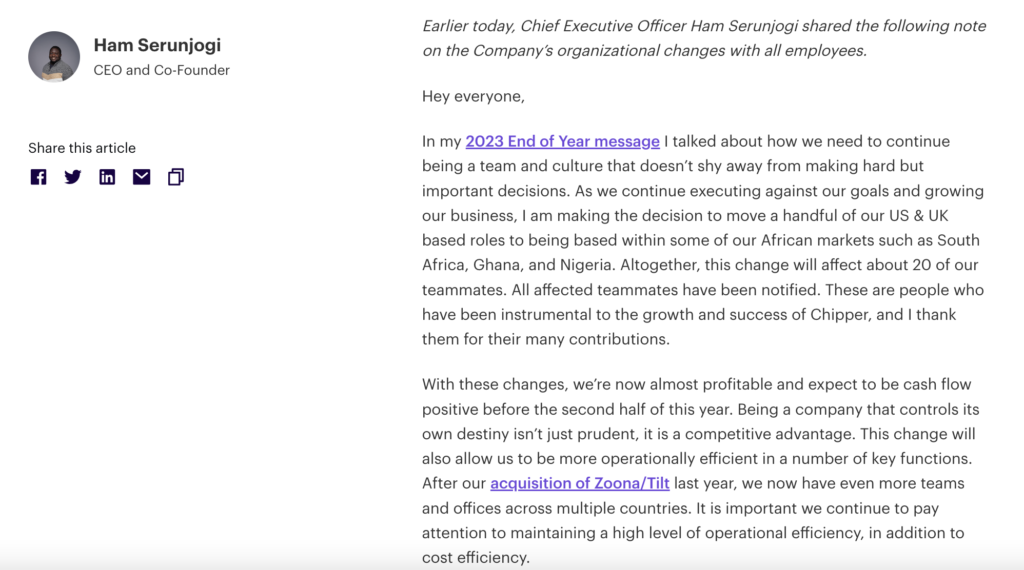In a move signaling ongoing restructuring efforts, African fintech powerhouse Chipper Cash has announced another significant reduction in its workforce, this time affecting its teams stationed in the United Kingdom and the United States. This latest round of layoffs, which has seen nearly two dozen employees being relieved of their duties in these regions, is part of a broader series of workforce reductions that commenced in mid-2022. Since then, Chipper Cash has executed seven rounds of layoffs, cumulatively impacting over 200 employees across various departments and geographies.
This persistent downsizing reflects the company’s strategic pivot towards consolidating its operations and reinforcing its commitment to the African market, where it originally established its fintech credentials. The decision to let go of staff in the UK and US, as painful as it is, underscores a significant shift in Chipper Cash’s operational focus, aiming to streamline its services and leverage the burgeoning opportunities within the African financial sector.

The job functions of the departing employees in the UK and US are slated to be transitioned to the company’s personnel based in Africa, suggesting a reallocation of resources to enhance efficiency and service delivery in its primary market. This transition is expected to fortify Chipper Cash’s offerings on the continent, aligning with its long-term vision of driving financial inclusion and offering seamless financial services to the unbanked and underbanked populations in Africa.
These layoffs come at a time when the global tech industry is experiencing a wave of job cuts, attributed to economic uncertainties and a reevaluation of operational priorities. For Chipper Cash, this move might also hint at a more prudent approach to scaling and sustainability, following the rapid expansion phase that initially propelled it to unicorn status within the fintech sector.
As Chipper Cash navigates through these changes, the fintech community will be keenly watching how these strategic adjustments impact its growth trajectory and its ability to maintain its stronghold in the African financial ecosystem amidst increasing competition and market challenges.












